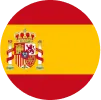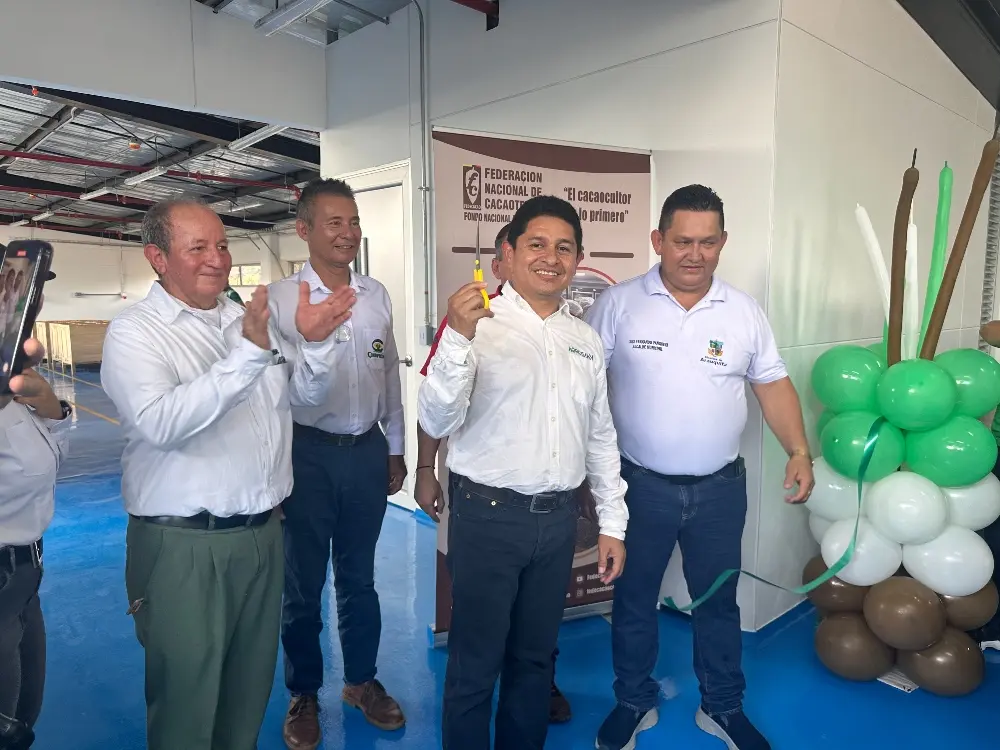Arauquita, Arauca. July 11, 2025. With the participation of producers, researchers, partners, institutions, and local authorities, the progress and results of the "Cacao Arauca" project under the General System of Royalties (SGR) were shared, including the inauguration of the cocoa post-harvest valorization plant of the COMPROCAR Cooperative, located in the village of El Troncal, municipality of Arauquita.
This initiative, led by the La Libertad Research Center in partnership with the National Federation of Cocoa Farmers – FEDECACAO, the Government of Arauca, and local producer associations, represents a significant step forward in strengthening the cocoa production chain in the region.
The project titled “Implementation of Agroforestry Strategies and Integration of Advances in Agronomic and Post-Harvest Management of New Clones to Improve Cocoa Productivity and Quality in the Department of Arauca” involves an investment of over 24 billion pesos. It is funded through the Science and Technology Fund of the departmental General System of Royalties, along with contributions from AGROSAVIA, FEDECACAO, CABEFAMI, and the municipalities of Arauquita and Tame.
Since its launch in 2021, the project has impacted over 600 producers from Arauquita, Saravena, Fortul, and Tame; including members of local associations and cooperatives such as COMPROCAR, COOPROCOR LA DELICIA, and COOPCACO Ltda., as well as other cocoa growers in the region.
The project was developed through three components aimed at strengthening cocoa farming in the department, based on its rural potential and vocation, with the goal of promoting the region's economic development through the social inclusion of farming communities. Throughout its implementation, 18 master's and doctoral students were involved, five of whom are professionals from the region, contributing to the creation of skilled employment and the strengthening of local human talent.
Under the first component, three agroforestry trials were established in the municipalities of Arauquita, Saravena, and Tame, with arrangements that include non-timber forest products (NTFPs) such as Cacay and Rambutan, as well as high-value tropical timbers such as Abarco. Promising fine-flavor cocoa clones developed by AGROSAVIA were evaluated with the aim of expanding their registration in the region, along with FEDECACAO clones in the final evaluation phase, to broaden the genetic offer of cocoa and permanent shade species that support sustainable production models. Additionally, an ecological characterization of pollinators associated with cocoa cultivation was conducted, with recommendations for their conservation as part of the agroecological model. During the implementation, pests and diseases of economic importance in cocoa systems were identified and analyzed.
As part of this component, a clonal garden is being established in the municipality of Arauquita, featuring improved varieties managed in collaboration with the COOPROCOR cooperative, contributing to the availability of certified, high-quality plant material in the region.
Under the second component, an integrated strategy was developed to mitigate cadmium in soils and cocoa beans by combining bioproducts with tolerant bacteria, natural zeolite, and specific fertilizers, tested over the past two years.
Additionally, the first cadmium distribution map was created for cocoa-growing areas in Arauquita, Saravena, Fortul, and Tame, using a multi-criteria approach and specialized mapping. The geological and hydro-sedimentological origin of cadmium in the department was also identified, concluding that its accumulation in soils stems from sediments transported by the Arauca River and its tributaries. As a result of various practices and methodologies, practical technical recommendations were developed and validated for producers, with outreach activities already held in the municipality of Fortul (2024), Arauquita (Agricultural Forum, November 2024), and during the project progress meeting on July 9, 2025.
In the third component, focused on post-harvest valorization and quality profiling, technological strategies were designed, validated, and implemented to improve cocoa fermentation and drying processes, with an emphasis on solar energy use, good manufacturing practices, and the valorization of by-products. A comprehensive intervention was also carried out at the COMPROCAR post-harvest valorization plant, where rotary fermenters and energy-efficient solar dryers were installed to optimize processes and enhance bean quality. Additionally, sensory and chemical analyses of cocoa were conducted in nine agroecological zones of Arauca, identifying superior quality sensory profiles with distinctive fruity and nutty aromatic notes, positioning Arauca cocoa as a high-value-added product with strong potential for specialized market niches. Within this component, master's and doctoral students from Arauca were trained, conducting research on logistics, by-product valorization such as pulp, cocoa and chocolate quality analysis, market analysis, and design of equipment and/or processes for post-harvest centers.
During the event, the COMPROCAR post-harvest valorization plant was inaugurated, with the capacity to process up to 13 tons of cocoa per processing cycle. This infrastructure will centralize the post-harvest process under quality standards, increasing bean value and generating new commercialization opportunities for the region’s producers.
The project also includes the construction of a chocolate production facility equipped with a laboratory unit, a nursery for producing high-quality plant material in Arauquita, and a second post-harvest valorization plant with a six-ton capacity in the municipality of Tame.
- More information here:
- Darlin Conrado Mosquera
- Communications, Identity and Corporate Relations Professional
- Research Center La Libertad
- Communications, Identity and Corporate Relations Advisory Office
- dconrado@agrosavia.co
- AGROSAVIA





